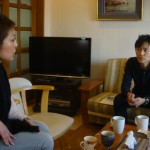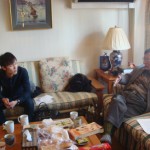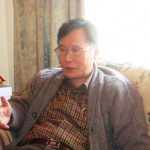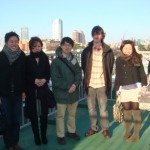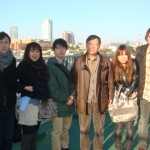Responsibility To Share
The international society has already learned that nuclear power development is a transnational concern through the experience of the nuclear meltdown accident at Chernobyl in former Soviet Union in 1996. What is happening at Fukushima Daiichi Nuclear Power Station has reminded global leaders and civilians the danger of nuclear power generation. They are asking how they can ensure their security and stability of essential nuclear energy.
The United Nations has reached an agreement that the country in charge of any security development has the primary responsibility to protect people from threats. This has been developed in a concept known as “Responsibility To Protect.” But at the same time, when the country in charge of threats to its citizens and people has not have the capability to protect their people or the will to deal with it, the international society needs to take the responsibility to protect the people facing the threat. However, this concept puts the responsibility on either the country concerned or the international community, while it should be shared by both. Particularly, Japan, which is now dealing with the Fukushima nuclear power plant explosions has the ability and the will to take the “Responsibility to Protect” through making efforts to protect both Japanese residents and foreigners living in Japan. However, it seems that both Japan and other nation states don’t have appropriate adequate information and knowledge concerning this unprecedented problem and is creating the sense of uncertainty regarding this issue. Therefore, sharing the process to collect, analyze, and disseminate with other nations all available information and knowledge regarding the developments concerning the Fukushima Nuclear Power Station is an effective action for not only making resolution of this issue but also promoting the international society’s wisdom and technological excellence regarding global nuclear issue for the future.
We suggest Japanese Government to promote this new concept “Responsibility To Share” for international society and alert wide cooperation for international society in order to accomplish global Human Security.
Professor Hasegawa thought that the Japanese Government takes an initiative to establish “the International Center for Information Collection, Analysis and Dissemination on Fukushima Dai-ichi Nuclear Power Station” and organizes an international investigation committee by inviting experts from other countries and international organizations such as the United States and IAEA. Then, the center should carry out the collection of information, analysis, inspection, dissemination of information about the situation of the Fukushima Dai-ichi Power Station. Cooperation within Japan and with other countries takes a very important part in the recovery project as well as the emergency humanitarian activity, so the Japanese Government should establish a framework which consists of not only the government, municipalities, companies and NGOs in Japan but also foreign experts and organizations to form an effective team.
We suggest the Japanese Government to declare that the problem regarding the nuclear power plant is a global issue, and thus it should be wrestled globally. To do so, Japan should exercise a stronger leadership which Japan has tried to have in many decades as the only atom-bombed country.
(Keisuke Nagashima, Jun Sune Misu)


